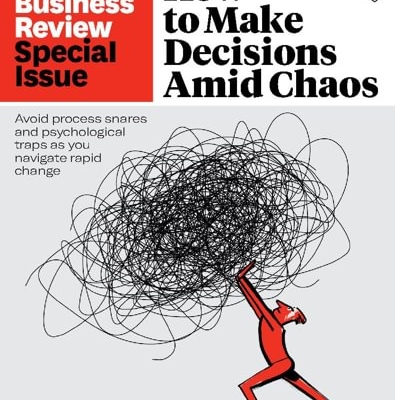 https://www.afterburner.com/wp-content/uploads/2024/09/leadership-symposium-afterburner.png
1050
1832
Nate Riggins
/wp-content/uploads/2024/07/Afterburner-Logo-Resize-Fullcolor-300x93.png
Nate Riggins2024-01-26 15:53:082024-12-02 14:58:31Decoding the 3 Crucial Leadership Situations
https://www.afterburner.com/wp-content/uploads/2024/09/leadership-symposium-afterburner.png
1050
1832
Nate Riggins
/wp-content/uploads/2024/07/Afterburner-Logo-Resize-Fullcolor-300x93.png
Nate Riggins2024-01-26 15:53:082024-12-02 14:58:31Decoding the 3 Crucial Leadership Situations
Before we delved into the world of leadership and training consultancy, we cut our teeth in the high-stakes arena of elite military units. In those intense environments, success wasn’t just desired—it was non-negotiable. So how did we ensure Flawless Execution every time? It all came down to one crucial practice: debriefing. It wasn’t just a post-mission ritual; it was our secret weapon for continuous improvement. By dissecting every mission, we unearthed valuable lessons and honed our skills for the next challenge. Now, we’ve translated these military-tested strategies into powerful tools for business leaders worldwide.
Why Debriefing Matters
In today’s fast-paced world, organizations that fail to adapt risk falling behind. Markets evolve at lightning speed, and outdated strategies can spell disaster. That’s where debriefing comes in. It’s not just a meeting—it’s a cornerstone of agile learning and knowledge preservation. By regularly reflecting on past experiences, teams can stay ahead of the curve and anticipate changes before they happen.
It’s also not just about recounting past events; it’s about distilling actionable insights. Through structured debrief sessions, teams transform experiences into tangible knowledge. This explicit knowledge is the currency of innovation and growth in any organization. But debriefing isn’t just about what went wrong; it’s about fostering a culture of continuous improvement. By shining a light on both successes and failures, teams cultivate a shared commitment to excellence.
The Tangible Benefits
Debriefing isn’t just a box to check at the end of a project; it’s a game-changer. It formalizes the conclusion of tasks, providing closure and clarity for teams. And in a world where mistakes are inevitable, debriefing turns errors into opportunities for growth. But it’s not just about avoiding failure; it’s about celebrating wins. Debriefing celebrates successes, dissecting them to uncover the secrets of their achievement. And by identifying root causes, teams pave the way for lasting process improvements.
Debriefing isn’t just about tasks; it’s about transforming culture and leadership. It fosters openness, honesty, and trust—essential ingredients for high-performing teams. Through debriefing, leaders mentor emerging talent, ensuring continuity in a rapidly changing world. And as organizations embrace debriefing at all levels, they unlock a powerful engine for continuous improvement. By addressing root causes and fostering resilience, teams become adept at navigating complexity and uncertainty.
Embracing the Future
In today’s dynamic landscape, the ability to learn and adapt is more critical than ever. Debriefing isn’t just a tool; it’s a mindset—a commitment to constant evolution. Organizations that embrace debriefing as a core practice will not only survive but thrive in the face of uncertainty.
Don’t wait until tomorrow to start maximizing the potential of your team. Contact us today to learn how our expert consultants can help you implement a robust debriefing strategy that drives real results. Let’s make every mission count—together.
Share This Post
More Like This
 https://www.afterburner.com/wp-content/uploads/2024/09/leadership-symposium-afterburner.png
1050
1832
Nate Riggins
/wp-content/uploads/2024/07/Afterburner-Logo-Resize-Fullcolor-300x93.png
Nate Riggins2024-01-26 15:53:082024-12-02 14:58:31Decoding the 3 Crucial Leadership Situations
https://www.afterburner.com/wp-content/uploads/2024/09/leadership-symposium-afterburner.png
1050
1832
Nate Riggins
/wp-content/uploads/2024/07/Afterburner-Logo-Resize-Fullcolor-300x93.png
Nate Riggins2024-01-26 15:53:082024-12-02 14:58:31Decoding the 3 Crucial Leadership Situations https://www.afterburner.com/wp-content/uploads/2024/09/the-execution-gap-afterburner.jpg
1080
1920
Nate Riggins
/wp-content/uploads/2024/07/Afterburner-Logo-Resize-Fullcolor-300x93.png
Nate Riggins2024-01-08 16:24:542024-12-02 14:58:32Closing the Execution Gap: Transforming Meetings and Strategies
https://www.afterburner.com/wp-content/uploads/2024/09/the-execution-gap-afterburner.jpg
1080
1920
Nate Riggins
/wp-content/uploads/2024/07/Afterburner-Logo-Resize-Fullcolor-300x93.png
Nate Riggins2024-01-08 16:24:542024-12-02 14:58:32Closing the Execution Gap: Transforming Meetings and Strategies https://www.afterburner.com/wp-content/uploads/2024/09/how-to-make-better-decisions-afterburner-1.jpg
1080
1920
Nate Riggins
/wp-content/uploads/2024/07/Afterburner-Logo-Resize-Fullcolor-300x93.png
Nate Riggins2023-12-12 17:38:372024-12-02 14:58:36Empowering Decisions Through Debrief Culture
https://www.afterburner.com/wp-content/uploads/2024/09/how-to-make-better-decisions-afterburner-1.jpg
1080
1920
Nate Riggins
/wp-content/uploads/2024/07/Afterburner-Logo-Resize-Fullcolor-300x93.png
Nate Riggins2023-12-12 17:38:372024-12-02 14:58:36Empowering Decisions Through Debrief Culture https://www.afterburner.com/wp-content/uploads/2024/09/flawless-leadership-afterburner-1.jpg
1080
1920
Nate Riggins
/wp-content/uploads/2024/07/Afterburner-Logo-Resize-Fullcolor-300x93.png
Nate Riggins2023-11-27 16:35:562024-12-02 14:58:37What Makes A Great Leader?
https://www.afterburner.com/wp-content/uploads/2024/09/flawless-leadership-afterburner-1.jpg
1080
1920
Nate Riggins
/wp-content/uploads/2024/07/Afterburner-Logo-Resize-Fullcolor-300x93.png
Nate Riggins2023-11-27 16:35:562024-12-02 14:58:37What Makes A Great Leader? https://www.afterburner.com/wp-content/uploads/2024/09/leadership-program-top-gun-experience-afterburner-1.jpg
1365
2048
Nate Riggins
/wp-content/uploads/2024/07/Afterburner-Logo-Resize-Fullcolor-300x93.png
Nate Riggins2023-11-15 06:03:332024-12-02 14:58:37Unleash the Leader Within: The Top Gun Experience for Trust Building
https://www.afterburner.com/wp-content/uploads/2024/09/leadership-program-top-gun-experience-afterburner-1.jpg
1365
2048
Nate Riggins
/wp-content/uploads/2024/07/Afterburner-Logo-Resize-Fullcolor-300x93.png
Nate Riggins2023-11-15 06:03:332024-12-02 14:58:37Unleash the Leader Within: The Top Gun Experience for Trust Building https://www.afterburner.com/wp-content/uploads/2024/09/bandit-and-Ace.jpeg
1707
2560
Nate Riggins
/wp-content/uploads/2024/07/Afterburner-Logo-Resize-Fullcolor-300x93.png
Nate Riggins2023-11-02 05:18:222024-12-02 14:58:38How Debriefing Can Skyrocket Your Productivity by Over 400%
https://www.afterburner.com/wp-content/uploads/2024/09/bandit-and-Ace.jpeg
1707
2560
Nate Riggins
/wp-content/uploads/2024/07/Afterburner-Logo-Resize-Fullcolor-300x93.png
Nate Riggins2023-11-02 05:18:222024-12-02 14:58:38How Debriefing Can Skyrocket Your Productivity by Over 400% https://www.afterburner.com/wp-content/uploads/2024/09/high-performance-afterburner-1.jpeg
1080
1920
Nate Riggins
/wp-content/uploads/2024/07/Afterburner-Logo-Resize-Fullcolor-300x93.png
Nate Riggins2023-10-24 05:25:102024-12-02 14:58:38Navigating the Era of Busyness: Achieving High Performance
https://www.afterburner.com/wp-content/uploads/2024/09/high-performance-afterburner-1.jpeg
1080
1920
Nate Riggins
/wp-content/uploads/2024/07/Afterburner-Logo-Resize-Fullcolor-300x93.png
Nate Riggins2023-10-24 05:25:102024-12-02 14:58:38Navigating the Era of Busyness: Achieving High Performance
Mastering Decision-Making in a World of Chaos: Lessons from Harvard Business Review Magazine
Business Culture, Leadership, Motivation https://www.afterburner.com/wp-content/uploads/2024/09/GID-mindset-afterburner-1.jpeg
1080
1920
Nate Riggins
/wp-content/uploads/2024/07/Afterburner-Logo-Resize-Fullcolor-300x93.png
Nate Riggins2023-08-22 07:01:132024-12-02 14:58:38The GID Mindset: Maximizing Time for Success
https://www.afterburner.com/wp-content/uploads/2024/09/GID-mindset-afterburner-1.jpeg
1080
1920
Nate Riggins
/wp-content/uploads/2024/07/Afterburner-Logo-Resize-Fullcolor-300x93.png
Nate Riggins2023-08-22 07:01:132024-12-02 14:58:38The GID Mindset: Maximizing Time for SuccessAbout Us
Building Strong Teams Through the Guidance of Fighter Pilot Keynote Speakers.

